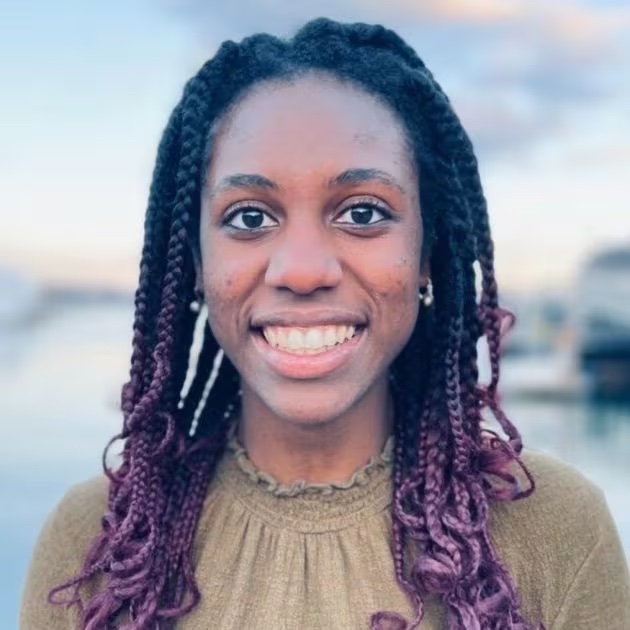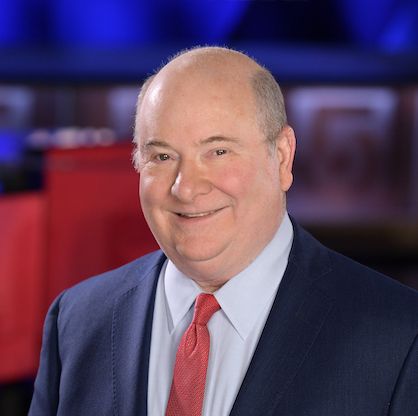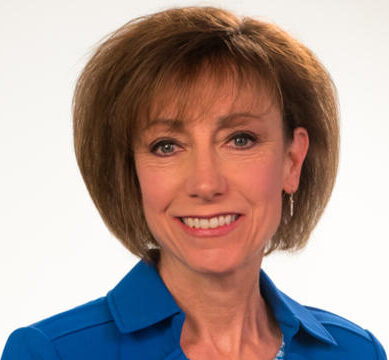Three Months Later: Journalists Share Insights, Lessons from Covering a Tragedy
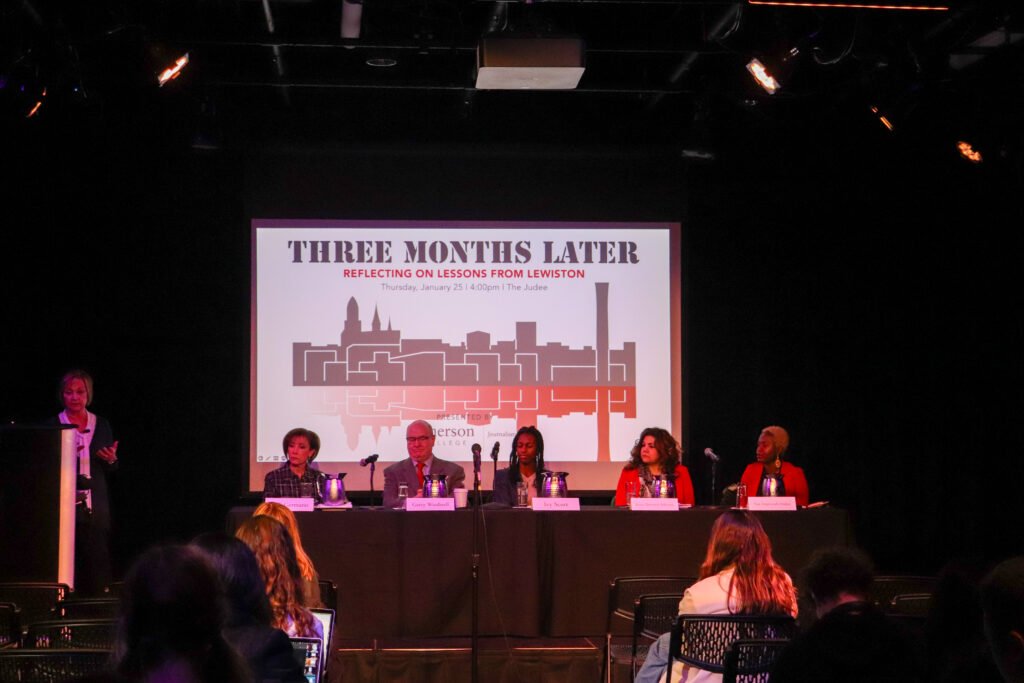
Photograph by Isa Luzarraga
Note: The following story discusses mass violence.
When Ivy Scott got the call from her editor on the night of Oct. 25, the criminal justice reporter for the Boston Globe was already in her pajamas, contacts out, settling in for the night. Hours later, Scott would be en route to Lewiston, Maine, pondering if she should call her mom and tell her that the unidentified gunman who had opened fire at a bowling alley and a nearby bar was still at-large, and presumably dangerous.
“I think having someone who knows where you are in a situation is important,” Scott said at a recent panel put on by Emerson’s Department of Journalism. “But at the time, it just didn’t seem wise for her to worry.”
Scott and other New England journalists traveled to Lewiston hours after the news of the shooting broke. Negotiating their own emotions while still being receptive to the trauma felt by many is a balancing act — an experiential art that Journalism Chair Lu Ann Reeb believes is a powerful lesson for journalism students.
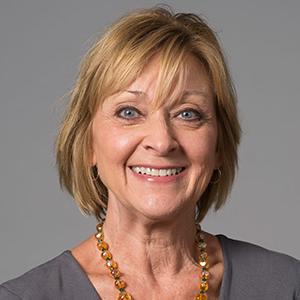
“We came to the conclusion that no journalist, really, is taught how to cover a mass shooting,” Reeb said at the beginning of the event, Three Months Later: Reflecting on Lessons from Lewiston. “None of us wants the story of the Lewiston mass shooting or the far too frequent mass shootings in America to make us numb to the reality of what’s happened.”
“None of us wants the story of the Lewiston mass shooting or the far too frequent mass shootings in America to make us numb to the reality of what’s happened.”
—Lu Ann Reeb, Journalism Chair
The coverage of the Lewiston mass shooting prompted Reeb and her colleagues to organize a panel of journalists who covered the tragedy, bringing Scott; WBZ-TV reporter Beth Germano; and WCVB Channel 5’s Assistant News Director Gerry Wardwell ’80 together to reflect on their experiences. Associate Professors Jessie Quintero Johnson, a licensed clinical social worker and program director for the Health and Social Change major, and Naa Amponsah Dodoo, program director for the Media Psychology major, also joined the panel.
The three journalists all were involved in coverage of the shooting in different capacities. Wardwell managed WCVB’s reporters from Massachusetts, strategizing which crews to send to Lewiston and who would pick up coverage in the following days.
“There are all kinds of little pieces and big pieces that had to fit together,” Wardwell said. “It’s one of the most difficult things to cover because of the sheer magnitude of people… even though it’s not in our state, in our area, you start to feel those kinds of stories connect.”
Like Scott, Germano, an Emmy Award-winning broadcaster, drove to Lewiston with a photographer. She arrived the morning after the shooting, tasked with identifying victims and talking to their families.
“What I do is I enter ‘the box,’” Germano said. “I have a job to do. And it’s not an easy job. You have to be very sensitive about how you approach these families. Sometimes people want to talk and obviously, sometimes they want you to go away as quickly as possible.”
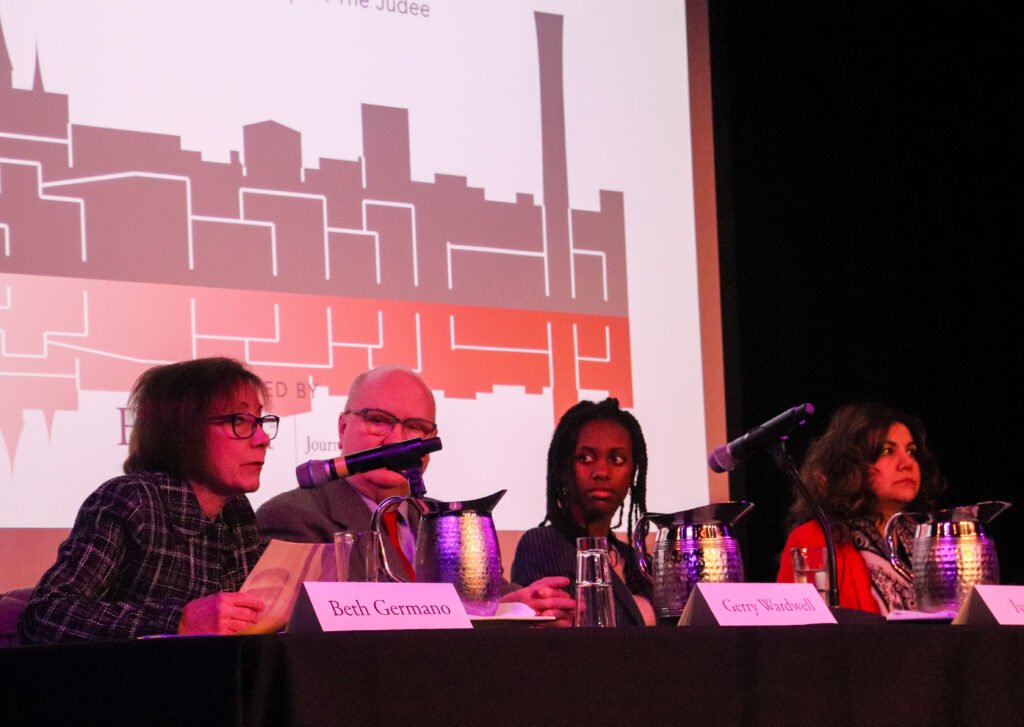
Managing their own emotions while assessing the emotional state of their sources was a common theme for the panel. Quintero Johnson talked about the importance of gauging one’s own wellbeing before interviewing an individual who has experienced trauma.
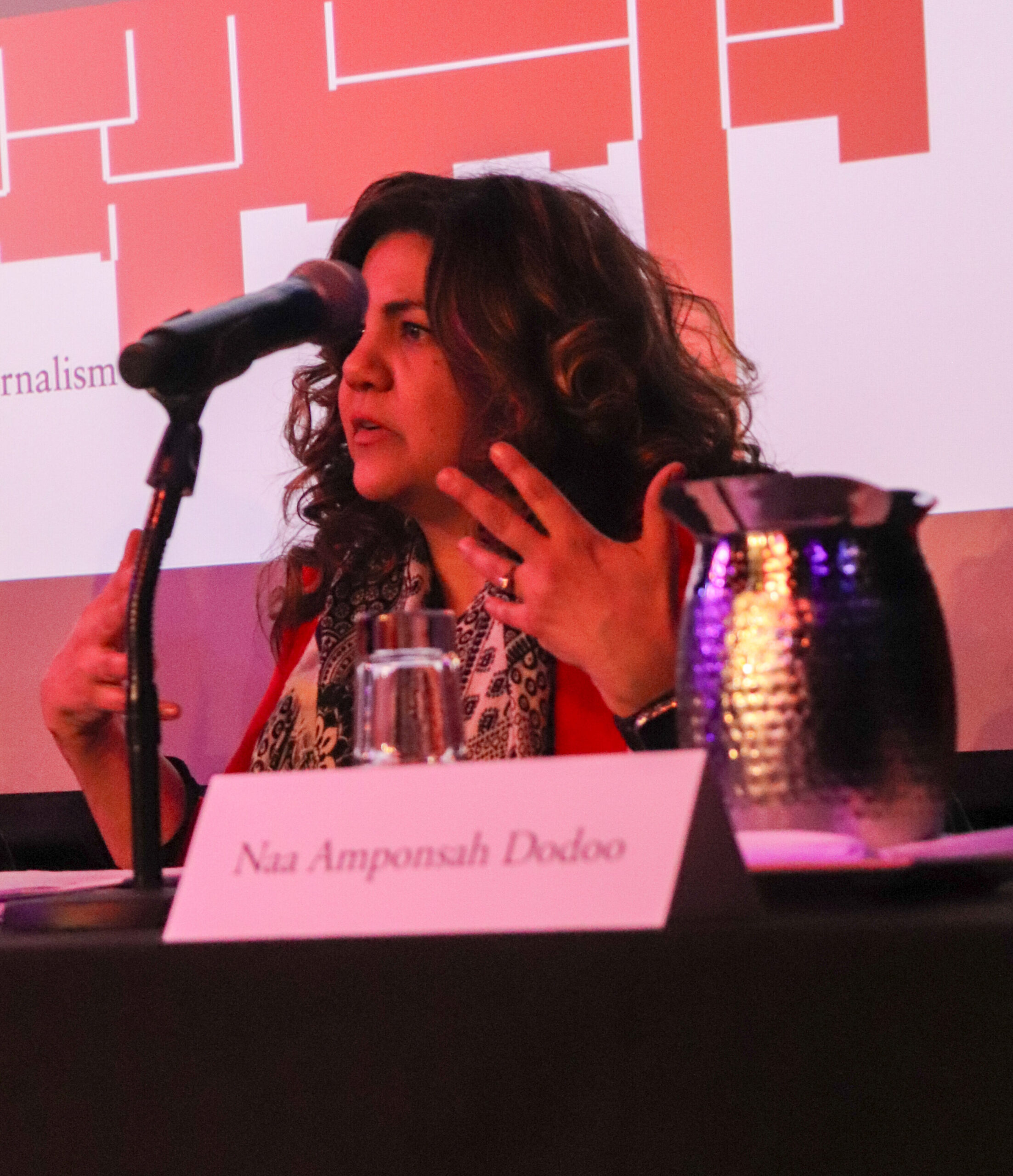
“When people experience trauma, there is this splitting of the self,” Quintero Johnson said. “When we become afraid, this sort of fight or flight… makes it really hard to feel like a cohesive self… to be able to share the facts or a story.”
Scott was initially stationed at the family reunification center in Lewiston, cataloguing the reactions and feelings of the town’s residents.
“You hear a lot of, like, ‘We never thought this would happen here,’” Scott said. “There’s a bit more shock, in addition to the grief and the pain… I think that there’s a way in which that’s a good thing. I don’t think that we want mass shootings to be particularly relatable experiences.”
Both Scott and Germano discussed the multitasking required to interview sources while also reporting back to their respective newsrooms.
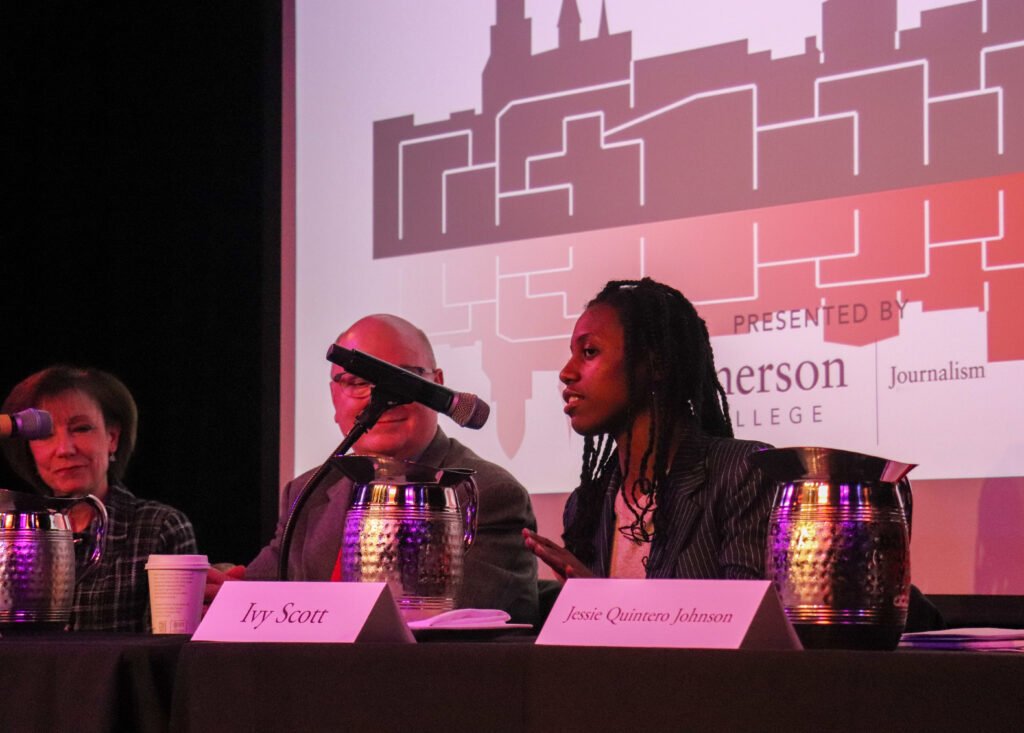
Photograph by Isa Luzarraga
“It’s definitely a juggling act,” Germano said. “You’re doing what I call ‘feeding the beast.’ You’re gathering your story for the five and six o’clock news, and many have four o’clock newscasts, too. You still have to be in contact with your newsroom and still in contact with social media, providing as many factually-based updates as you can.”
Amponsah Dodoo reflected on the role social media plays in disseminating information during such dire events as the Lewiston mass shooting. As journalists like Germano are posting updates on social media, other verified accounts, whether accredited news sources or not, are doing the same.
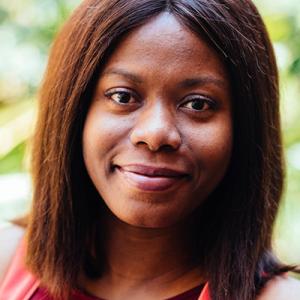
“You have to fight with other people who are spreading misinformation,” Amponsah Dodoo said. “For a situation like this where it’s something ongoing, you have to worry about who people trust online… And so do people trust you as journalists or do they trust other sources that could be verified?”
Ultimately, the panelists and Reeb recognized that no amount of experience can fully prepare someone for the demanding task of covering an event like Lewiston. Still, the conversation revealed the courage and selflessness exhibited by journalists responding to traumatic and often dangerous situations.
Categories
Isabella Luzarraga View All
Isa is a senior journalism major minoring in media studies. She is from Omaha, Nebraska but loves coming back to the city. Outside of coursework, Isa is the Managing Editor of Your Magazine, the secretary of Emerson's chapter of NAHJ and a freelance writer for publications nationwide. She loves reading in the Common, going for long runs and sipping iced coffee.
